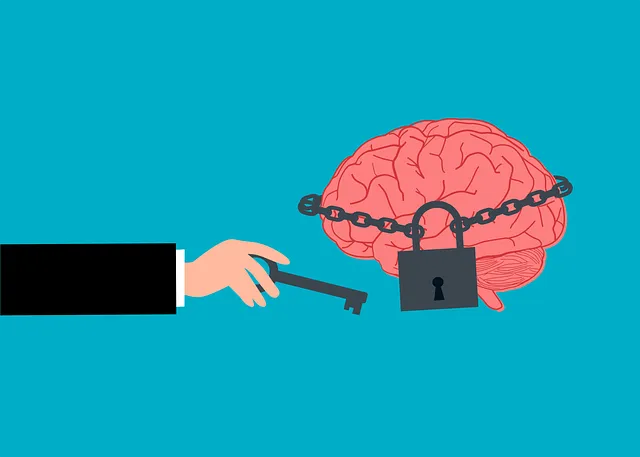The Englewood Kaiser Permanente Mental Health Access Center employs the RFM framework – focusing on resilience, flexibility, and mastery – to foster mental wellness through guided journaling, community-focused initiatives, and tailored trauma support. Their holistic approach combines traditional therapy with programs like the Mental Wellness Podcast Series, destigmatizing mental health while empowering residents with coping strategies for anxiety relief and enhanced resilience. By integrating RFM principles into community support systems, this center improves long-term mental well-being in underserved urban areas like Englewood.
Resilience is a crucial asset in navigating life’s challenges, and RFM (Resilience, Flexibility, and Mastery) exercises have emerged as effective tools to build this strength. This article explores how RFM enhances resilience, drawing from the successful implementation at the Englewood Kaiser Permanente Mental Health Access Center. We’ll delve into designing tailored resilience exercises, integrating these practices into community support systems, and their long-term benefits for overall wellbeing, with a specific focus on the Englewood Kaiser Permanente case study.
- Understanding RFM and its Role in Resilience Building
- The Englewood Kaiser Permanente Mental Health Access Center: A Case Study
- Designing Effective Resilience Exercises for Coping Strategies
- Integrating RFM into Community Support Systems for Long-Term Wellbeing
Understanding RFM and its Role in Resilience Building

Resilience is a vital component of overall mental wellness, enabling individuals to navigate life’s challenges and adversity with strength and adaptability. This is where RFM (Resilience, Flexibility, and Mastery) comes into play as a powerful framework for fostering resilience. At the Englewood Kaiser Permanente Mental Health Access Center, they recognize that building resilience isn’t just about overcoming difficult circumstances; it’s about cultivating skills to thrive despite them.
RFM exercises are designed to enhance emotional healing processes by promoting self-awareness and effective coping strategies. Through guided journaling exercises, individuals can explore their thoughts and emotions, gaining valuable insights into their reactions to stressful situations. This mental wellness journal serves as a tool for self-reflection, allowing one to identify patterns in their response to challenges and begin the process of trauma support services tailored to their needs. By integrating RFM principles, Englewood Kaiser Permanente Mental Health Access Center offers practical guidance for navigating life’s complexities, empowering individuals to lead more fulfilling lives.
The Englewood Kaiser Permanente Mental Health Access Center: A Case Study

The Englewood Kaiser Permanente Mental Health Access Center stands as a beacon of hope and resilience in communities often overlooked. This center offers a unique approach to mental health support, combining traditional therapy with innovative exercises designed to build resilience. The focus on community engagement sets it apart, addressing not just individual needs but the collective wellness of Englewood residents.
Through its various programs, the access center provides a safe space for individuals to learn and practice coping mechanisms tailored to their unique experiences. These initiatives include the Mental Wellness Podcast Series Production, which uses audio storytelling to destigmatize mental health conversations, and well-structured Mental Health Education Programs Design that empower community members with knowledge and tools for enhancing mental wellness. The center’s holistic approach, combining access to professional help with community-driven initiatives, has significantly contributed to anxiety relief and overall resilience among Englewood residents.
Designing Effective Resilience Exercises for Coping Strategies

Resilience exercises play a pivotal role in equipping individuals with effective coping strategies to navigate life’s challenges, particularly those seeking mental health support at centers like the Englewood Kaiser Permanente access center. When designing such exercises, it’s essential to consider the diverse needs and experiences of participants. Incorporating elements that stimulate emotional healing processes, such as mindfulness practices, cognitive reframing techniques, and stress management skills, can help individuals build mental fortitude.
These exercises should foster a safe and supportive environment where individuals feel comfortable exploring their emotions and sharing personal stories. Engaging activities like group discussions, guided visualizations, or creative outlets like art therapy can facilitate trauma support services and anxiety relief. By tailoring resilience-building programs to address specific emotional healing processes, centers like Englewood Kaiser Permanente can offer tailored interventions that resonate with clients, promoting lasting positive change.
Integrating RFM into Community Support Systems for Long-Term Wellbeing

Integrating RFM (Resilience, Flexibility, and Mastery) principles into community support systems is a powerful strategy to enhance long-term mental health and well-being, particularly in urban settings like Englewood, where access to mental health services is crucial. The Englewood Kaiser Permanente Mental Health Access Center, for instance, has recognized the value of these practices in fostering resilience among its community members. By incorporating Compassion Cultivation Practices (CCP) and Self-Care Routine Development, residents gain valuable tools to navigate life’s challenges, reduce stress, and improve overall mental well-being.
This holistic approach goes beyond traditional therapy by focusing on burnout prevention through RFM exercises. Encouraging self-care routines empowers individuals to take charge of their mental health and build resilience against life’s adversities. Such initiatives have the potential to create a supportive network where residents learn from one another, creating a vibrant community that promotes mental wellness, mirroring the benefits seen in similar programs across urban landscapes.
The integration of Resilient Factor Model (RFM) and resilience-building exercises presents a promising approach to enhancing community wellbeing, as demonstrated by the success of the Englewood Kaiser Permanente Mental Health Access Center. By designing effective exercises that target coping strategies, we can empower individuals to navigate life’s challenges more effectively. Adopting RFM principles into community support systems ensures long-term mental health benefits, fostering resilient communities capable of weathering any storm. This comprehensive approach, backed by evidence and real-world applications like the case study presented, holds the key to building a more robust and adaptable society.






